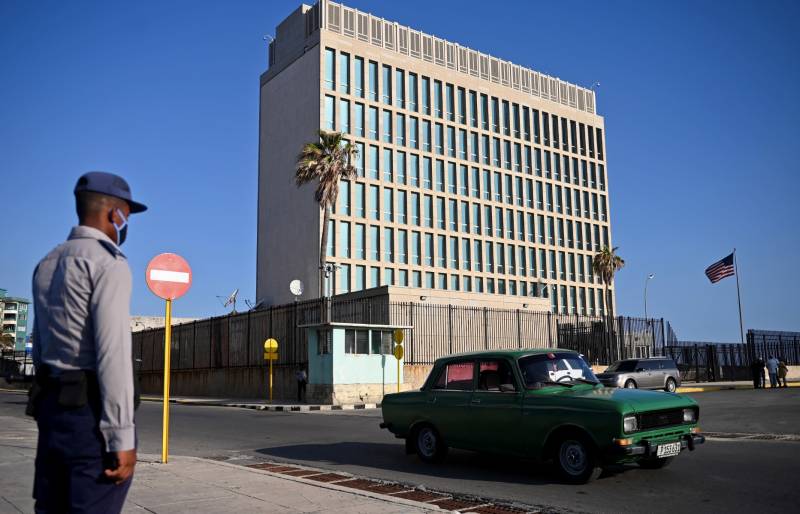US resumes full immigrant visa service in Havana

Stay tuned with 24 News HD Android App

Five years after it was closed due to mysterious "sonic attacks" on diplomatic staff, the US consulate in Havana resumes full immigrant visa services for Cubans on Wednesday.
The reopening comes amid a record exodus from the communist island to the United States, mainly by undocumented migrants, as Cuba suffers its worst economic crisis in 30 years.
"The United States is working to ensure safe, legal, and orderly migration of Cubans by expanding consular operations in Havana and restarting the Cuban Family Reunification Parole Program (CFRP)," the embassy said in a statement last week.
The consulate would open fully for "immigrant visa processing," though tourist visas remain off limits for now.
The consulate was closed under the Donald Trump administration after diplomatic staff and their families fell ill with symptoms later nicknamed Havana Syndrome.
US missions in other countries also subsequently claimed to have been targeted, but the exact nature of the alleged attacks remains a mystery.
The closure of the consulate meant that Cubans seeking to travel to the United States faced an expensive administrative obstacle course.
They had to travel to a third country, usually Guyana in the north of South America, to submit visa requests.
- No warming -
Since Joe Biden replaced Trump as president in 2021, several high-level meetings have sought to find a solution to the migratory standoff.
In May last year, the consulate resumed "limited" visa services.
"It is a good sign that the governments of both countries are talking to each other about how to manage migration flows in an orderly and rational way," analyst Michael Shifter of Georgetown University in Washington told AFP.
Jorge Duany, a Cuba specialist at the Florida International University, pointed out the talks were "limited to migration issues" and did not indicate a general warming of ties.
The United States has had sanctions against Cuba for 60 years.
After a four-year relaxation during the presidency of Barack Obama, relations deteriorated under his successor Trump, who reinforced sanctions.
Despite election promises, Biden has not reversed the measures, in fact hardening his speech following anti-government protests on the island in July 2021 that saw hundreds arrested and jailed.
Washington has kept Cuba on its list of countries deemed sponsors of terrorism and recently added it to another of countries undermining religious freedom.
- 'Direct link' -
The Caribbean island nation was hard hit by the coronavirus pandemic, which crippled its critical tourism sector.
Remittances sent from abroad -- which in 2019 reached $3.7 billion and is another vital source of income for Cubans -- also largely dried up in recent years with travel blocked.
"There is a direct link between the upsurge of extreme (US) measures against the Cuban economy and the dramatic migratory flow," Johana Tablada, a senior official in Cuba's foreign affairs department, told AFP in November,
Last year, Washington gave more than 20,000 visas to Cuban nationals -- the first time since 2017 that it complied with a provision under a 1994 bilateral agreement to issue this number every year.
More than 326,300 Cubans -- some 2.9 percent of the country's population of 11.2 million -- entered the United States illegally in the 12 months from December 2021, according to American authorities.
In 2021, during the pandemic, the number was just 39,000.
Departures shot up since November 2021, when Cuba ally Nicaragua eliminated the visa requirement for islanders, meaning many would-be migrants now fly to the Central American country to start the dangerous trek on foot to the United States.
By resuming visa services, "Mr Biden is trying to recalibrate his policy towards Cuba, seeking a middle way between Trump’s 'maximum pressure' and Obama's 'rapprochement,'" said Duany.
"But for the time being the changes in American policy towards the island have been minimal," he added.
And according to Shifter: "For the moment the conditions are not there to move towards a normalization of relations."
